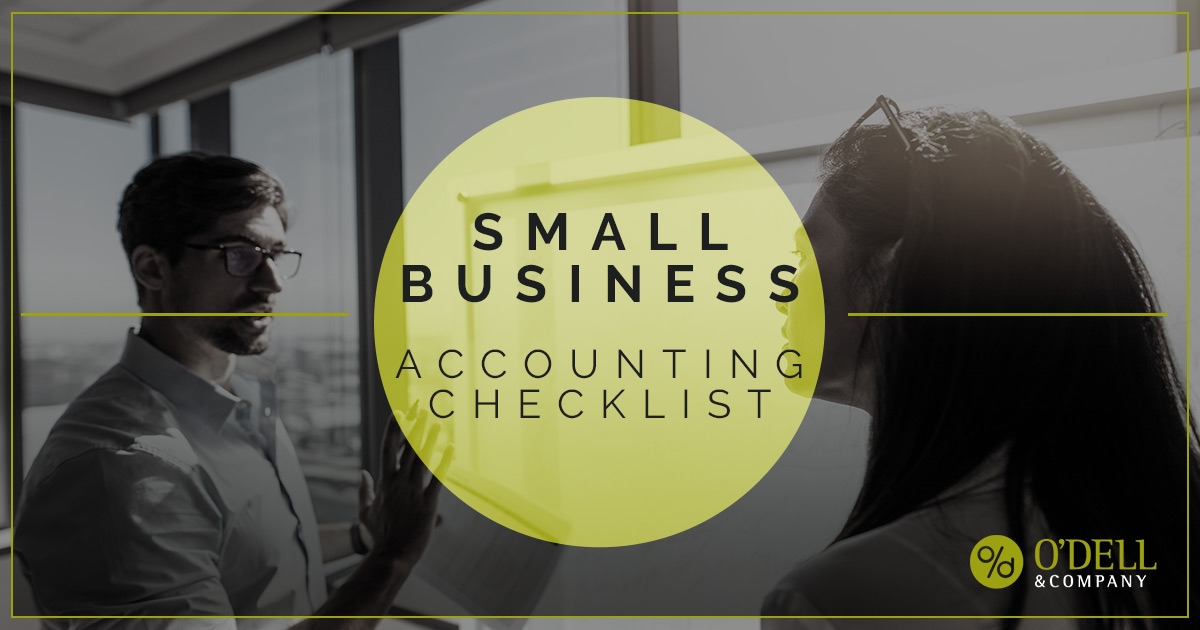Running a business is stressful enough as it is.
When you pile on all of the daily, weekly, monthly and yearly accounting tasks, it can sometimes seem downright daunting to be a business owner. But it doesn’t have to be.
With the right mindset, support, and guidance, your business accounting operations can be streamlined and optimized so that you can focus your attention and energy into the aspects of your business which need it most.
This is not to say that your company’s finances are not important — they are arguably the most important aspect of running a business, in fact — but rather, it’s just to say that there is help out there if you want it.
At O’Dell & Company, our Fort Collins CPA firm has helped countless business owners to find relief from their stressful accounting practices. With reliable support and feasible solutions, along with easy-to-use cloud-based accounting software, running a business is as fun and rewarding as you dreamt it would be.
In this blog, we’ll lay out a step-by-step business accounting checklist in order to help you better organize your financial tasks. If you’re looking for help with small business bookkeeping, juggling your accounts payable and receivable, or just need help with general ledger maintenance, our Fort Collins CPA firm can help.
Keep reading to learn more and contact O’Dell & Company today to get started.
Daily Accounting Checklist
On a day-to-day basis, there isn’t a whole lot to worry about from an accounting perspective. However, without some general upkeep and attention, the financial health of your business could continue to crumble.
One of the most important things you need to do on a daily basis is check the amount of cash your business has on hand. While it’s good to have a general expectation for how business will flow that day, it’s always important to know that you have cash reserves in case of an unexpected expense or operational need.
Check the registers (or the bank account) daily and jot them down in your ledger to know what you’re working with. Doing so will also help you examine trends and better prepare your business.
Weekly Accounting Checklist
On a weekly basis, there are a few more tasks to consider. Among them are:
- Transaction Records: This is where that cloud-based business accounting software like Quickbooks comes in handy. That way, you can easily and efficiently record each and every business transaction (whether it’s accounts payable or receivable) to know exactly what is coming in and what is going out. Utilizing software is much more efficient than recording transactions by hand.
- File Receipts: Documentation is crucial when it comes to business accounting. Rather than piling all of your invoices and receipts in a random box or drawer, set aside a dedicated filing cabinet that is sorted in a way that makes sense to you.
- Sort Bills: It’s important that you have a good grasp on your bills and their due dates. To avoid falling behind, review your unpaids each week and tackle however many you can with the cash you have available.
- Forecast: Daily record keeping and inventory can make it easy to project trends and forecast your weekly cash flow. By forecasting each week, it will become easier for you to understand how to manage your budget more effectively.
Monthly Accounting Checklist
This is where you start to look at big-picture business accounting tasks, such as:
- Checkbook Balancing: Double-check your bank statements with your checkbook entries to make sure you crossed all of your T’s and dotted all your I’s throughout the course of the month.
- Payroll: At the beginning or the end of each month is when you’ll want to set aside some dedicated time to sort through your employee’s payroll and tax payments. This will need to be done each month as you report your numbers to the appropriate agencies.
- Analyze Inventory: Are there any operational expenses you need in order to help your business run? How is your product inventory looking? Examining these things each month will help you get a good grasp of how things are going while also helping you forecast expenses and cash flow for the future.
Yearly Accounting Checklist
On an annual basis, you will need to file all of the proper IRS tax forms for yourself, your business, and your employees. This is also the time when you’ll review your financial reports, past due receivables, and take a look at your inventory.
Most business owners get a little bit more stressed out when tax time rolls around each year. That’s why you need a trusted Fort Collins CPA firm, like O’Dell & Company, by your side.
We have the knowledge and experience necessary to optimize all of your business accounting needs. Give us a call today to discover your small business accounting solutions!


Leave a reply
You must be logged in to post a comment.